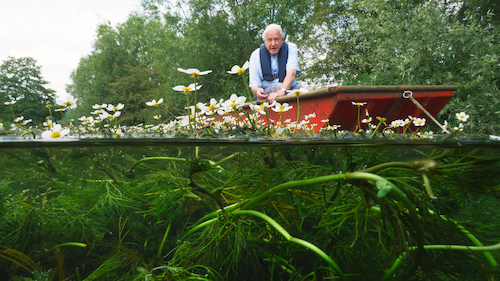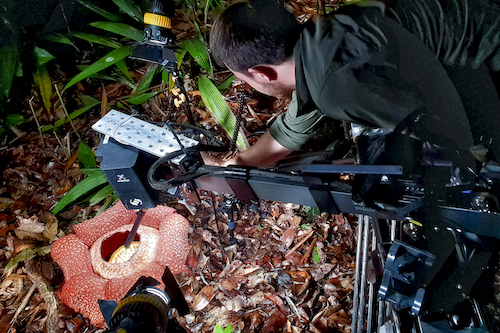Communiqué
Plants are as aggressive, competitive and dramatic as animals in “The Green Planet.” Series premieres July 6 at 8 pm
< < Back to plants-are-as-aggressive-competitive-and-dramatic-as-animals-in-the-green-planet-series-premieres-july-6-at-8-pmTHE GREEN PLANET
New Five-Part Series Hosted by Sir David Attenborough
Premieres Wednesdays, July 6-August 3, 2022
Series Uses the Latest Technology to Reveal the Secret, Incredible World of Plants

THE GREEN PLANET is a new five-part documentary series about Earth’s biodiversity told through the fascinating story of plants. As host Sir David Attenborough explains: “Every mouthful of food that we eat, every lungful of air that we breathe, depends on plants.” Using pioneering new filmmaking technology and the latest science, THE GREEN PLANET takes viewers from the deepest jungles to the harshest deserts, revealing the strange and wonderful world of plants as never before. Living secret, unseen lives, plants are often overlooked. Yet they are as aggressive, competitive and dramatic as animals — locked in life-and-death struggles for food and light, taking part in fierce battles for territory and desperately trying to reproduce and scatter their young. Produced in partnership with the BBC Studios’ Natural History Unit, THE GREEN PLANET premieres Wednesdays, July 6-August 3, 2022, 8:00-9:00 p.m. ET on PBS, PBS.org and the PBS Video app.
In the series, Sir David travels the globe, from deserts to mountains, from rainforests to the frozen north, to present a fresh understanding of how plants live their lives. He meets the largest living things that have ever existed, trees that care for each other, plants that hunt animals and plants that breed so fast they could cover the planet in a matter of months. He finds time travelers — seeds that can outlive civilizations and plants that remain unchanged for decades. By examining our relationship with plants past, present and future, THE GREEN PLANET reveals how all animal life, including ours, is totally dependent on plants.

Using pioneering motion-control robotics systems, THE GREEN PLANET takes viewers on a magical journey, going beyond the power of the human eye to make visible the amazing, hidden life of plants. Thermal cameras, macro frame-stacking, ultra-high-speed cameras and the latest developments in microscopy reveal the lives of plants and their incredible beauty. Surprisingly social, they communicate with each other, care for their young and help the weak and injured. They can plan, they can count — and they can remember.
Sir David believes we are living at the perfect time for a reexamination of the plant world. “There has been a revolution worldwide in attitudes towards the natural world in my lifetime — an awakening and an awareness of how important the natural world is to us all,” he said. “An awareness that we would starve without plants, we wouldn’t be able to breathe without plants. Yet people’s understanding about plants, except in a very kind of narrow way, has not kept up with that. I think this series will bring it home.”
“PBS is proud to partner on this truly extraordinary series, an unprecedented, fully-immersive portrayal of the plant world,” said Bill Gardner, Vice President, Multiplatform Programming and Head of Development, PBS. “With its groundbreaking cinematography our audiences will be transported into the very fabric of our ecosystem, and see our world in an entirely new way.”

